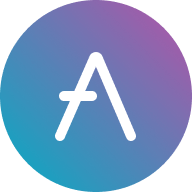Introduction to DAO Tokens Proposal
Decentralized Autonomous Organizations (DAOs) have transformed the way communities govern and manage digital assets. At the heart of DAO operations lies the proposal system, enabling members to vote on initiatives that shape the organization’s future. Key topics in DAO proposals include token burns, buybacks, governance models, and community voting rights. This article explores these mechanisms in depth, analyzing their impact and effectiveness.
Token Burn Mechanisms and Their Impact on Value
Token burns are a widely adopted strategy by DAOs to reduce the circulating supply of tokens, potentially increasing their value over time.
HTX DAO employs a quarterly token burn plan, allocating 50% of its revenue to buy and burn $HTX tokens. This process is fully transparent, leveraging on-chain traceability to allow community members to verify the burns.
While token burns aim to support long-term value, their effectiveness is influenced by market sentiment and token demand.
Long-Term Effectiveness of Token Burns
Token burns create scarcity, which can positively impact token value. However, their long-term effectiveness remains debated. Proponents argue that consistent burns demonstrate strong governance and commitment to token holders, while critics question whether burns alone can sustain value in volatile markets.
Decentralized Governance Models in DAOs
Governance models are the backbone of DAOs, enabling members to propose and vote on initiatives. Different DAOs adopt unique approaches to governance:
Jito DAO utilizes subDAOs to delegate decision-making tasks, enhancing efficiency in specialized areas like cryptoeconomics. This model supports targeted strategies, such as token buybacks and yield subsidies, to stabilize token value.
Aave DAO has proposed updates to its Aavenomics framework, introducing profit-sharing mechanisms for stakers and innovative self-protection systems for users.
Balancing Efficiency and Decentralization
While subDAOs streamline decision-making, they can raise concerns about diluting the broader community’s influence. Striking a balance between efficiency and decentralization is a challenge many DAOs face, requiring careful design and community engagement.
Token Buybacks and Their Effectiveness
Token buybacks are another mechanism frequently proposed in DAOs to stabilize or increase token value.
Jito DAO has integrated buybacks into its cryptoeconomics strategy, aiming to create upward pressure on token prices.
Buybacks often signal confidence in the token’s future, but their effectiveness depends on market conditions and the DAO’s financial health.
Market Sentiment and Token Buybacks
Buybacks can positively influence market sentiment, but they are not a guaranteed solution. Critics argue that buybacks may only provide short-term benefits, necessitating complementary strategies for sustained impact.
Community Governance and Voting Rights
Community governance is central to the DAO model, but it comes with challenges. Voting rights and token allocations often spark debates about fairness and decentralization:
Jupiter DAO has faced criticism for centralization due to team members holding large allocations of $JUP tokens, which can disproportionately influence governance votes.
Ensuring equitable voting rights is crucial for maintaining trust and engagement within the community.
Addressing Centralization Concerns
DAOs must carefully design token distribution and voting mechanisms to avoid centralization. Transparent processes and community-driven initiatives can help mitigate these concerns, fostering trust and inclusivity.
Profit-Sharing and Incentives for Token Holders
Profit-sharing mechanisms are increasingly proposed to incentivize token holders and enhance community engagement.
Aave DAO has introduced profit-sharing for stakers, allowing them to earn rewards while contributing to the ecosystem’s security.
Such incentives strengthen the relationship between DAOs and their communities, fostering long-term loyalty.
Balancing Rewards and Sustainability
While profit-sharing is attractive to token holders, DAOs must ensure these mechanisms are sustainable and do not compromise the organization’s financial stability. A balanced approach is essential for long-term success.
Proposals for New Tokens and Their Implications
Introducing new tokens within a DAO ecosystem can be a contentious issue.
Aave DAO rejected a proposal to launch a second token, Horizon, citing concerns about diluting $AAVE’s utility and governance power.
Proposals for new tokens must carefully consider their impact on the existing ecosystem and community.
Risks of Token Dilution
Launching additional tokens can fragment governance and utility, potentially weakening the DAO’s core token. DAOs must weigh the benefits of diversification against the risks of dilution, ensuring alignment with long-term goals.
Transparency and Accountability in DAO Initiatives
Transparency is a cornerstone of DAO operations, ensuring trust and accountability among members. Initiatives like token burns and funding programs must be executed with clear communication and traceability:
HTX DAO emphasizes transparency through on-chain traceability and community voting tools.
Arbitrum DAO is reconsidering funding for its Gaming Catalyst Program due to concerns about transparency and performance.
Building Trust Through Transparency
DAOs that prioritize transparency are more likely to maintain community trust and engagement. Leveraging blockchain technology for traceability can further enhance accountability, ensuring members remain informed and involved.
Conclusion
DAO token proposals are a critical aspect of decentralized governance, shaping the future of these organizations. From token burns and buybacks to governance models and profit-sharing, each mechanism offers unique benefits and challenges. By prioritizing transparency, equitable voting rights, and sustainable strategies, DAOs can foster stronger communities and drive long-term success.
As the DAO ecosystem continues to evolve, proposals will remain a vital tool for innovation and growth, ensuring these organizations adapt to the ever-changing landscape of blockchain technology.
© 2025 OKX. Este artículo puede reproducirse o distribuirse en su totalidad, o pueden utilizarse fragmentos de 100 palabras o menos de este artículo, siempre que dicho uso no sea comercial. Cualquier reproducción o distribución del artículo completo debe indicar también claramente lo siguiente: "Este artículo es © 2025 OKX y se utiliza con permiso". Los fragmentos permitidos deben citar el nombre del artículo e incluir su atribución, por ejemplo "Nombre del artículo, [nombre del autor, en su caso], © 2025 OKX". Algunos contenidos pueden generarse o ayudarse a partir de herramientas de inteligencia artificial (IA). No se permiten obras derivadas ni otros usos de este artículo.


